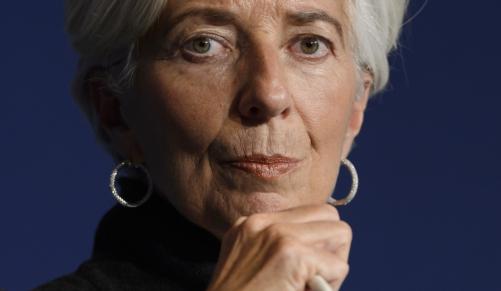Mozambique: Social security hopes to double number of beneficiaries by 2031
Breaking: IMF says Mozambique must accept audit to restore confidence – Bloomberg

UPI (File photo / IMF head Christine Lagarde
Mozambique’s government should take measures to restore confidence with international partners by accepting an external forensic audit, the outgoing International Monetary Fund representative said.
A group of 14 donors demanded in May an investigation by international auditors on how loans to at least three Mozambique state-owned companies were used before resumption of aid. The group suspended budgetary support after the southern African nation revealed in April that it had more than $1.4 billion in undisclosed debt.
“If the government proceeds with the international forensic audit, it will be important to restore trust with donors,” IMF’s Alex Segura told reporters in the capital, Maputo, late Monday.
While Mozambique’s Attorney-General is already investigating the hidden debt, the government could do more to restore relations with its lenders, Segura said, adding that the coal-producing nation will continue to face hard economic times in the short term. President Filipe Nyusi said last month his government would be open to an external examination should an ongoing local probe fail to yield results.
IMF Visit
The government failed to disclose to investors credit to three state-owned entities including Proindicus and the Mozambique Asset Management while arranging to convert another corporate loan into sovereign credit. The disclosure of the loans caused the IMF to halt a $286 million bailout loan signed last October. Western donors including the U.K. and Portugal have suspended about $500 million in aid for this year.
An IMF team is expected in Maputo in September to assess the government’s compliance with austerity measures agreed on during a past visit in June, the government-run Noticias newspaper reported earlier this month, citing Prime Minister Carlos do Rosario. The Washington-based lender has demanded greater transparency, accountability and improved governance by Mozambique’s authorities.
The nation is battling with debt after a commodity slump reduced its export revenue and a depreciation of the metical boosted its payment costs in dollars. The IMF projects economic growth will slow to 4.5 percent this year compared with 6.6 percent in 2015. The metical has weakened 34 percent this year against the dollar, the second-worst performing currency in Africa after the Nigerian naira, driving inflation to 20.7 percent in July.
The yield on Mozambique’s $727 million Eurobond due January 2023 shed 3 basis points to 17.11 percent on Tuesday, compared with a record 19.18 percent on June 27, when the IMF warned the nation’s public debt was at a high risk of distress.












Leave a Reply
Be the First to Comment!
You must be logged in to post a comment.
You must be logged in to post a comment.